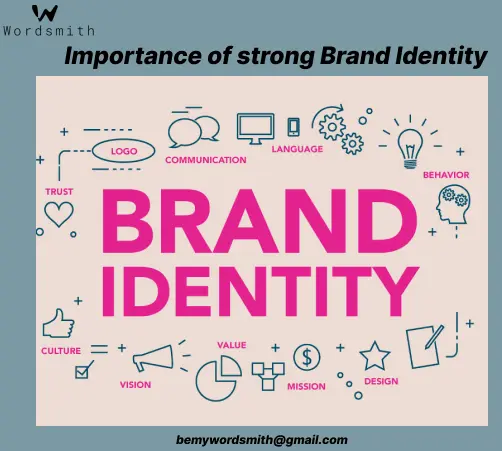Innovative Recruitment Strategies: Beyond Traditional Job Boards
Ipsita P | 12-05-2023 | 09 min read
Finding and attracting qualified candidates is a challenge that recruiters have struggled with for years. Even if traditional recruitment methods work, you need something new and creative to go beyond them.
To get into the topic, first we need to understand what does Innovative Recruitment and Traditional Recruitment mean?

Traditional Recruitment -
Traditional recruiting refers to established methods of attracting, evaluating, and hiring candidates, often based on standard practices such as job postings, resume reviews, interviews, and referrals. Traditional recruitment methods have been around for centuries, dating back to the Middle Ages when applicants sought jobs through local recruitment agencies, but the recruitment industry as we know it has. It wasn't until the 20th century that it really began to take shape. Until the early 2000s, recruitment strategies such as job advertisements and headhunting were considered the norm. These techniques were effective at the time, but they don't work as well today. In this day and age, job seekers rely on newspaper ads, job boards, and word of mouth to find job openings, and recruiters spend hours reviewing resumes to find the right candidate for the job.
The Challenges:
While traditional recruitment methods have served companies well for years, they are not without some challenges. For example, traditional recruitment methods are incredibly time-consuming and often involve long processes that can take weeks to years. Additionally, the limited candidate pool can make it difficult for recruiters to find the right person for the job, and traditional recruitment methods can also be prohibitively expensive. It can put a huge strain on a company's budget.
While traditional recruitment methods remain prevalent in today's job market, changing candidate expectations and advances in technology are challenging their effectiveness. While many companies still rely on job boards and direct applications, the landscape has changed significantly. The rise of social media and digital platforms has changed recruitment strategies, leading to a shift towards more technology-focused and innovative approaches.
Traditional recruiting methods are challenged by today's candidates, who demand personalized experiences, responsiveness, and a deep understanding of a company's culture. The proliferation of remote work, the need for a diverse talent pool, and demands for faster hiring cycles are also putting pressure on traditional methods.
Innovative Recruitment -
In order to gain a significant competitive advantage, you need to adopt a superior strategy that differentiates you from your competitors. The 'Do Different' principle in recruiting means that to successfully attract top talent in your industry, you need to differentiate yourself from your competitors by offering innovative and effective new recruitment strategies. Innovation is rare in HR, so an organization who implements innovation in the recruitment process, automatically stands out from its competitor.
Creative recruiting means attracting and engaging potential candidates in an attractive way. The essence of this is to break away from traditional methods and approach talent acquisition from a new perspective. Today, job seekers, especially Millennials and Gen Z, want more than just a paycheck. They are looking for meaningful experiences. They want to know that you are as interested in them as they are in you.
Creative recruiting is about using unconventional and imaginative methods to attract, engage, and ultimately hire top talent. Break away from traditional recruitment approaches and adopt innovative strategies to stand out in a competitive market and capture the attention of potential candidates. Central to this approach is fostering a unique and memorable experience for both candidates and recruiters throughout the hiring process.

The Benefits of Innovative Recruitment Strategies over Traditional Job Boards -
While this change has been welcomed by many, some remain skeptical about the benefits of modern adoption. But did you know that this not only benefits recruiters, but also candidates and agencies? In fact, modern recruitment has several advantages compared to traditional recruitment .
- Diverse Candidate Pool: Innovative strategies leverage multiple channels beyond job boards and leverage social media, professional networks, and AI-driven platforms. This approach expands the candidate pool and allows you to attract both active and passive job seekers with diverse backgrounds and skills.
- Improving Candidate Engagement: Today's candidates want personalized experiences. Innovative strategies like game-based assessments, video interviews, and interactive content make recruiting more engaging and dynamic, fostering stronger connections with job candidates.
- Improving Cultural Fit: Beyond the resume, innovative strategies focus on assessing cultural fit. These methods, such as immersive experiences and employee introductions, emphasize cultural fit, leading to higher long-term retention and stronger team dynamics.
- Adabtibility to Remote Work: As remote work becomes more prevalent, innovative strategies are incorporating virtual tools and remote-friendly assessments to target candidates seeking flexible work arrangements and adapting to changing work environments.
- Cost-efficiency and data-driven decision-making: The initial investment in technology can be high, but innovative talent hiring reduces attrition rates and data-driven insights improve the quality of hires, leading to long-term cost savings.
Today's Personnel and Recruitment Trends–
- Employer Branding: Build a strong, authentic employer brand that communicates your company's identity and values and attracts candidates who are not just looking for a job, but also want to share your company's vision.
- Thinking outside the box: We rely on unconventional ideas and methods that go beyond standard recruiting practices. This includes original job postings, interactive content, and novel ways to interact with potential candidates.
- Innovative Engagement: Leverage diverse channels such as social media, immersive technologies like VR/AR, gamification, and unique events to engage with candidates in meaningful and memorable ways.
- Continuous Improvement: Accept feedback, analyze results, and evolve your recruiting strategy to dynamically respond to changing candidate expectations and market trends.

Some more trends are :
➔ More and more baby boomers are retiring, leaving a gap in skills and experience in management and leadership positions.
➔ Gen Z is now entering the world of work alongside Millennials.
➔ But there still aren't enough Millennial and Gen Z workers to replace all the retiring baby boomers.
➔ An emerging gig economy where more and more people work as freelancers or on short-term contracts.
➔ Many industries continue to transition to automation and remote work.
Effective Recruitment Strategies to Improve Future Recruitment Success -
1. Employee Referral Programs: Leveraging Internal Networks
Leveraging existing employees to attract new talent through referral programs has proven to be highly effective as it leverages employees' familiarity with the company's culture and values. These programs promote cultural fit by encouraging employees to recommend candidates who align with the organization's ideals, resulting in higher retention rates. Companies like Dropbox and Airbnb have found success with referral programs that provide incentives that lead to better cultural fit and higher employee engagement. Such initiatives not only attract qualified candidates, but also strengthen a sense of community among employees and ultimately strengthen organizational cohesion and success.
2. Social Media and Professional Networking: The Power of Online Presence:
Social media and professional networking platforms wield immense influence in modern recruitment strategies due to their unparalleled reach and engagement potential. These platforms, including LinkedIn, Twitter( now X), and industry-specific networks, empower organizations to showcase their culture, values, and job opportunities, captivating passive job seekers. Maintaining a robust online presence fosters direct interaction with potential candidates, enabling companies to build relationships and create a compelling employer brand. Leveraging social media's dynamic features and targeted outreach amplifies visibility, attracting a diverse talent pool. Through strategic utilization, businesses enhance their brand perception, strengthening their talent acquisition efforts in today's competitive market.
3. Skill Assessments and Gamification: Beyond Resumes and Interviews:
Competency assessment and gamification in recruitment goes beyond traditional assessment methods by providing an interactive and immersive experience. These innovative tools provide a comprehensive view of a candidate's skills, beyond what is revealed on a resume or interview. Through playful assessments, candidates demonstrate problem-solving, critical thinking and adaptability skills in exciting scenarios. This approach not only more accurately identifies top talent, but also improves candidate engagement and experience. Companies like IBM and Deloitte are leveraging gamification in their recruiting efforts, creating unique challenges that assess candidate skills while fostering a dynamic and forward-thinking employer brand, ultimately leading to better results. This leads to good hiring decisions.
4. Video Interviews and Resumes: Communicating Beyond Words :
Video interviews and resumes go beyond traditional communication methods and allow you to get a deeper understanding of candidates beyond words on a page. These media allow you to visually and verbally express a candidate's personality, communication style, and professionalism. They provide a more holistic perspective and demonstrate nonverbal cues and presentation skills. Companies are using video formats to assess cultural fit and evaluate candidates more comprehensively. Companies like Amazon and Goldman Sachs are using video to improve their hiring processes, foster a more nuanced understanding of candidates, and ultimately lead to better hiring decisions.
5. Talent Pools and Pipelining: Proactive Recruitment Strategies:
Talent pools and pipelines represent proactive recruiting strategies that focus on nurturing relationships with potential candidates for future roles. These approaches aim to foster networks of qualified talent and create a steady flow of talent. By taking the time to build and maintain relationships with candidates, companies ensure faster and more efficient hiring when positions become available. Companies like Google and Apple use talent pools to anticipate workforce needs, gain access to pre-screened candidate pools, and accelerate the hiring process for critical roles.
6. Diversity and Inclusion Initiatives: Embracing Diverse Perspectives:
Diversity and inclusion efforts work to integrate different perspectives, backgrounds, and experiences within the workforce. These strategies focus on creating an environment where individuals feel valued, respected, and included, regardless of their differences. Companies like Microsoft and Airbnb are pursuing such initiatives not only for compliance reasons, but also to foster innovation and creativity. Embracing diversity not only attracts a broader range of talent, but also fosters a vibrant work culture that leads to improved problem solving, better decision-making, and a more empathetic organizational spirit.
7. Artificial Intelligence and Machine Learning: Streamlining Recruitment Processes :
Artificial intelligence (AI) and machine learning (ML) are revolutionizing recruitment by automating and streamlining various aspects of the recruitment process. These technologies analyze vast amounts of data to improve candidate search, selection, and matching. AI-powered tools like chatbots optimize initial interactions, answer questions, and plan interviews efficiently. ML algorithms improve resume parsing and candidate evaluation, allowing for faster and more accurate evaluations. Companies like Amazon and IBM are using AI/ML to reduce bias, increase efficiency, and quickly identify top talent. This frees up recruiters to focus on strategic decisions, resulting in more effective, data-driven recruiting results.
8. Text Messaging and Chatbots: Instant Engagement and Support :
Text messaging and chatbots are revolutionizing candidate engagement by providing instant interaction and support throughout the hiring process. These tools allow you to communicate quickly, process inquiries, schedule interviews, and send reminders efficiently. Companies like Hilton and McDonald's use chatbots for initial interactions with candidates, improving the candidate experience with immediate responses and advice. In addition to speeding up communication, text messaging and chatbots cater to the preferences of tech-savvy candidates, making the hiring process seamless and accessible, and ultimately increasing overall engagement and efficiency.
Why is Innovative Recruitment Better Than Traditional Recruitment?
Here is the difference to understand better why Innovative Recruitment Strategies are being accepted widely.
| ASPECTS | INNOVATIVE RECRUITMENT | TRADITIONAL RECRUITMENT |
|---|---|---|
| 1. Talent Attraction | Attracts the best candidates looking for a modern workplace and an exciting experience. | Appeal to candidates who prefer traditional methods. There may be a shortage of tech-savvy talent. |
| 2. Candidate Experience | Deliver a more engaging and personalized experience, leading to positive candidate perceptions. | Provides standard processes. Personalization may be lacking, resulting in a negative experience for candidates. |
| 3. Brand Differentiation | Helps businesses stand out by showcasing their unique culture, values, and brand identity. | Less emphasis is placed on presenting unique brand characteristics, resulting in less differentiation. |
| 4. Efficiency and Effectiveness | Leverage technology, AI, and data analytics to deliver optimized, faster hiring cycles. | Manual processes may be required, which can result in long recruitment times and inefficiencies. |
| 5. Adaptability to Trends | Be more adaptable to changing trends in candidate behavior, technology, and market dynamics. | Be more adaptable to changing trends in candidate behavior, technology, and market dynamics. |
| 6. Long-Term Impact on Employer Brand | Create a lasting positive impact on your employer brand and increase your attractiveness to future talent. | You may not be focused on providing a memorable experience for candidates, which impacts long-term brand perception. |
| 7. Cost-Effectiveness | Initial investment in technology and campaigns. In the long run, this may reduce employee turnover and reduce hiring costs. | Although the initial investment may be lower, it can be more costly in the long run due to reduced sales and efficiency. |
| 8. Diversity and Inclusion Focus | Emphasizes diversity and inclusion, attracts diverse candidates, and fosters an inclusive culture. | Diversity efforts may not be prioritized, leading to a less diverse talent pipeline. |
Key Takeaways -
➔ Innovative recruiting strategies go beyond traditional job boards by diversifying channels, leveraging technology for engagement, and emphasizing cultural alignment and employer branding.
➔ Incorporating AI, gamification, and social media, these techniques improve the candidate experience, adapt to market changes, and attract a diverse talent pool.
➔ These foster agility, improve hiring efficiency, promote a strong employer brand, and ultimately retain top talent and create a competitive advantage in the job market.
Popular blogs

Importance of Strong Brand Identity
Your brand's identity is essential to the success of your company. We frequently consider branding decisions to...

Role of Sleep Fitness and Recovery
Despite the fact that sleep is one of the most vital components of human performance, people frequently sacrifi...

Business Benefits of Content Marketing
With its many commercial benefits and crucial position in SEO tactics, content marketing is becoming a powerful...
Submit a Comment